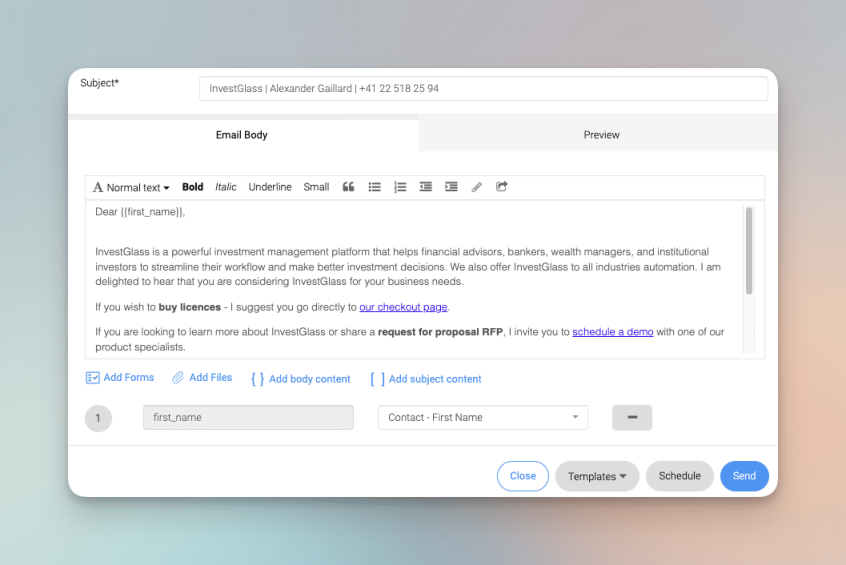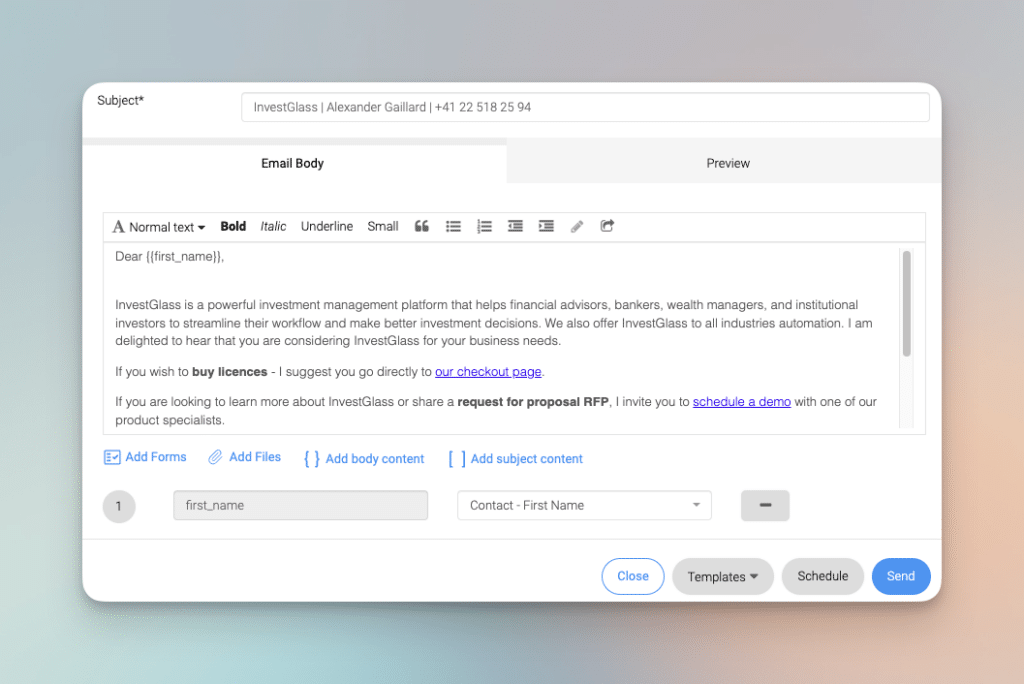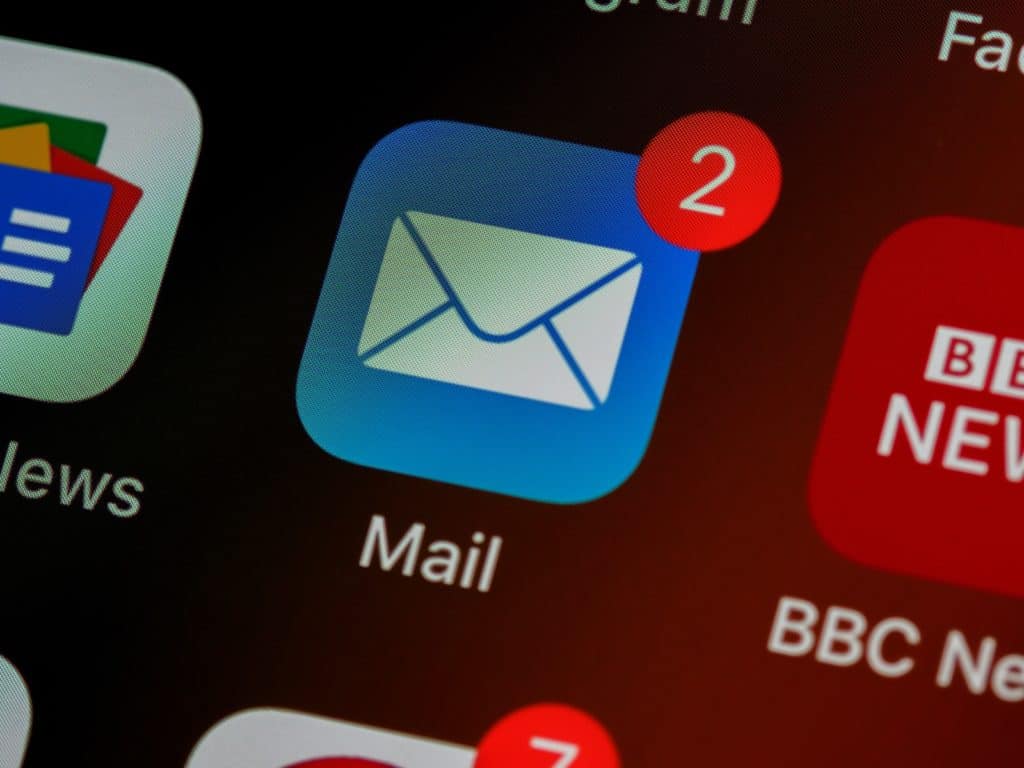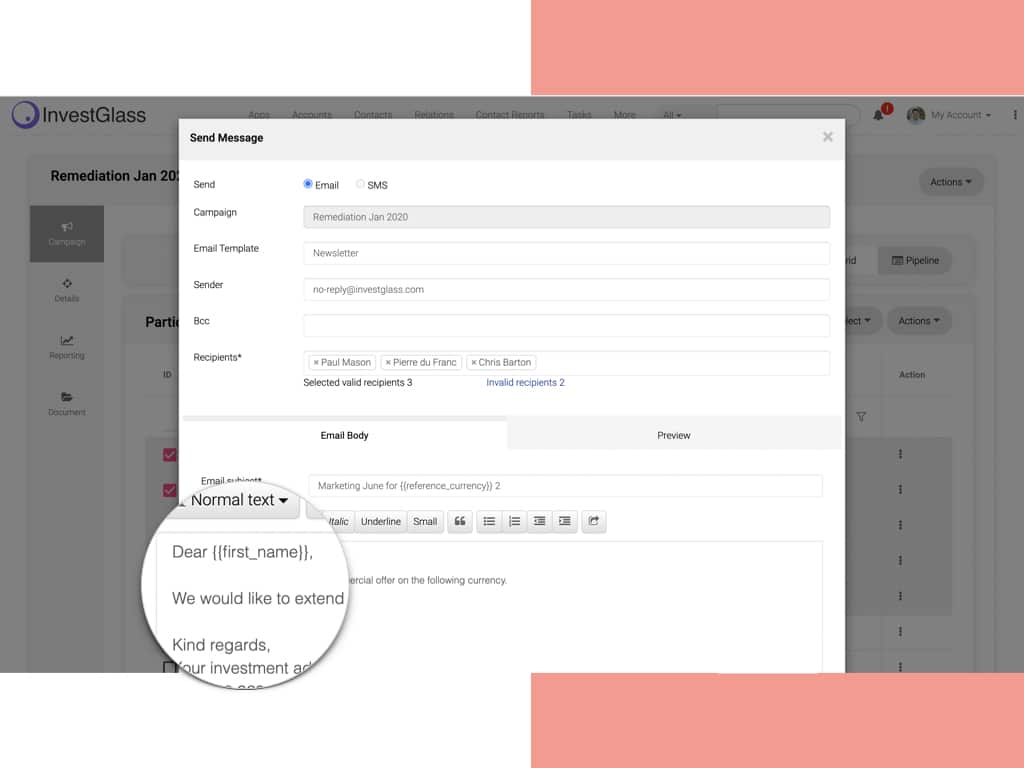Crafting a Friendly Reminder Email: 18 Examples & Templates for 2024

Have you ever missed an important deadline, overlooked a meeting, or forgotten to pay an invoice on time? A friendly reminder email can play a crucial role in preventing these mishaps while maintaining a positive relationship with clients and colleagues. In this blog post, we will delve into 18 examples and templates for crafting the perfect friendly reminder email, as well as tips and best practices to ensure your messages are both effective and considerate.
Key Takeaways
- Friendly reminder emails are essential for maintaining communication and stimulating action.
- Include a compelling subject line, respectful tone, concise content & well-defined call to action in polite reminders.
- Personalize messages, consider timing & frequency of sending reminders and proofread them before sending to ensure effectiveness.
The Importance of Friendly Reminder Emails

Friendly reminder emails are indispensable in preserving communication, stimulating action, and guaranteeing that significant events or tasks are not overlooked. Just a friendly reminder that these gentle nudges can be sent to a wide range of recipients, including:
- Colleagues and friends
- Customers
- Managers
- Companies and organizations
Whether it’s an upcoming event, a payment due, or a deadline approaching, a well-crafted reminder email can make all the difference in ensuring everything runs smoothly and on schedule.
Key Elements of a Gentle Reminder Email

A gentle reminder email should incorporate four key elements:
- A compelling subject line
- A respectful tone
- Concise yet informative content
- A well-defined call to action
Creating a compelling reminder email involves striking a balance between politeness and clarity, ensuring your message is conveyed while maintaining positive rapport with the recipient.
Subject Line
The subject line is your first chance to grab the recipient’s attention and communicate the purpose of the email. The subject line’s precision is central to drawing the recipient’s attention at first glance. For example, a suitable subject line for a polite appointment reminder email would be “Appointment Reminder: [Appointment Detail] at [Time]”.
A clear and concise subject line ensures that your reminder email stands out in the recipient’s inbox and increases the likelihood of a prompt response.
Tone
The tone of polite reminder emails should be respectful, avoiding any aggressive or demanding language. Even when urgency is necessary, it’s crucial to maintain a professional and respectful tone in a polite reminder email.
Adopting a respectful tone allows for effective message delivery without offending or causing discomfort to the recipient.
Content
The content of a gentle reminder email should be concise and informative, providing all necessary details and context. This includes a courteous salutation, a reminder of the context or purpose of the original request, and pertinent details such as date, time, and location (if applicable).
Clear and accurate information in your reminder email can avert misunderstandings and foster effective communication with the recipient, making it one of the most important reminder messages.
Call to Action
A clear call to action should be included in your reminder email, guiding the recipient on what they need to do next. Whether it’s confirming attendance at an event or settling an unpaid invoice, a well-defined call to action ensures that the recipient is aware of the necessary next step and acts accordingly.
For example, in a payment reminder email, the call to action could be to pay the unpaid invoice immediately.
Types of Friendly Reminder Emails

There are various types of friendly reminder emails to address different situations, and using a reminder email template can help ensure consistency and effectiveness. These include:
- Event reminders
- Payment reminders
- Deadline reminders
- Appointment reminders
- Subscription renewals
- Cart abandonment reminders
- Content promotion reminders
- Follow-up reminders
Each type serves a specific purpose and caters to different scenarios, ensuring that all the details of important events, tasks, or obligations are not overlooked.
Event Reminders
Event reminders contribute significantly to any event’s success, keeping attendees informed about upcoming happenings and crucial details. Including confirmation of the recipient’s attendance, providing pertinent details regarding the event, and requesting a response for confirmation of attendance can all contribute to a well-crafted event reminder email.
For example, an event reminder could be as simple as: “Just a reminder, this is a courteous reminder that the annual company picnic is scheduled for this Sunday.”
Payment Reminders
Payment reminders serve as a gentle nudge for clients to address overdue invoices or missed payments. A well-crafted payment reminder email should be unambiguous and articulate all the legal ramifications of not paying the invoice. For example, a gentle reminder for an unpaid invoice could be: “We kindly request that the invoice be paid immediately. As a small business, we rely on our customers to pay promptly in order to sustain our services to you and your business. If you could please confirm receipt of this email and provide an estimated time of payment, that would be greatly appreciated. Should any difficulties arise in the payment of this invoice, please do not hesitate to contact us.”.
Deadline Reminders
Deadline reminders assist individuals in remembering and fulfilling their tasks and obligations, thereby avoiding the consequences of a missed deadline. A deadline reminder email should clearly indicate the due date of the project and provide a link to its development progress. Furthermore, it should also contain contact information for any inquiries. Crafting an effective deadline reminder email subject is crucial for capturing the recipient’s attention and ensuring timely action.
Appointment Reminders
Appointment reminders aid clients in remembering their scheduled slots, minimizing instances of no-shows and last-minute cancellations. An effective appointment reminder email should include:
- A clear subject line
- A personalized message
- Suitable timing
- Appropriate frequency
For example, an appointment reminder could be: “This is to remind you that your dental checkup is scheduled for tomorrow at 10 AM. We are eagerly awaiting your arrival. See you soon!
Subscription Renewals
Subscription renewal reminders prompt customers to renew their subscriptions before expiration, contributing to a business’s steady revenue flow. These reminders may include information about the benefits of renewing, special offers, or incentives to encourage the customer to take action.
Cart Abandonment
Cart abandonment reminders serve to remind online shoppers to finalize their purchases, potentially increasing conversion rates and reducing lost sales. Personalizing the email, timing the email appropriately, and sending the email at an appropriate frequency can all contribute to the effectiveness of a cart abandonment reminder email.
Content Promotion
Content promotion reminders help drive traffic to new or existing content, such as:
- blogs
- eBooks
- webinars
- videos
- podcasts
By reminding your audience of the valuable content you have to offer, you can increase engagement and drive more visitors to your website or platform.
Follow-Up Reminders
Follow-up reminders, such as a follow up email, play a pivotal role in sustaining communication and eliciting a response from the recipient. These reminders can be used to:
- Arrange supplementary meetings
- Urge clients to finish surveys
- Request reviews or referrals
- Reconnect with recipients who have not answered to prior emails
Timely and courteous follow-up reminders ensure that your message is properly observed and responded to.
Tips for Writing an Effective Reminder Email

Crafting an effective reminder email involves personalizing the message, deliberating on the timing and frequency, and incorporating captivating visual elements. By adopting these strategies, you can ensure that your reminder emails not only convey the intended message but also maintain a positive relationship with the recipient.
Personalization
Personalizing your reminder emails can make them more engaging and effective. One simple but powerful personalization technique is addressing the recipient by their name. This small touch can make a significant difference in making your reminder email feel more tailored and relevant to the recipient, increasing the likelihood of a positive response.
Timing
The timing of your reminder email is significant because it can influence the recipient’s propensity to act. For example, sending a reminder email too early may result in the recipient forgetting the message, while sending it too late may appear disorganized.
Taking the time to carefully consider the timing of your reminder email can help ensure its effectiveness.
Frequency
Striking the right balance between the frequency of reminders is key to preserving a positive relationship with the recipient. Sending too many reminders may be perceived as intrusive and irritating, while too few reminders may result in the recipient failing to recall the task or event.
Determining the appropriate frequency for your reminder emails depends on the nature of the reminder and the preferences of the recipient.
Visual Elements
Incorporating visual elements, such as:
- images
- GIFs
- emojis
- icons
can make your reminder emails more engaging and easier to understand. Visual elements can improve the visual aesthetic, emphasize critical points, and make the email more attractive and legible.
When incorporating visual elements, it’s important to ensure they are relevant to the content, of high quality, and optimized for mobile devices.
Common Mistakes to Avoid in Reminder Emails
Ensuring the efficacy of your reminder emails requires avoiding common pitfalls such as:
- Employing a forceful tone
- Omitting clear instructions or details
- Utilizing vague subject lines
- Sending reminders with improper frequency
- Neglecting to proofread for errors
By avoiding these pitfalls, you can increase the effectiveness of your reminder emails.
By avoiding these pitfalls, you can improve the overall quality and effectiveness of your reminder emails.
Overly Pushy or Demanding Tone
An excessively forceful tone can strain the relationship with the recipient and diminish the reminder’s effectiveness. Instead, adopt a polite and respectful tone when drafting a reminder email, avoiding any aggressive or demanding language. To achieve this, it’s essential to write a gentle reminder that maintains a courteous approach.
Lack of Clear Instructions or Details
Inclusion of clear instructions and details in your reminder email is necessary to avoid confusion and make clear the recipient’s expectations. Be precise, provide illustrations, and use visuals where feasible to effectively convey your message.
Vague or Unclear Subject Lines
Vague or unclear subject lines can result in the email being disregarded or classified as spam, thus diminishing the response rate and making it hard for the recipient to comprehend the intent of the email.
To avoid this issue, be succinct and specific when composing a subject line, and utilize action words to effectively communicate the purpose of the email.
Inappropriate Frequency
Excessive or scant reminders can prove counterproductive and potentially harm the relationship with the recipient. To strike the right balance, consider the nature of the reminder, the degree of urgency, and the preferences of the recipient when determining the appropriate frequency for your reminder emails.
Failure to Proofread
Failing to proofread your reminder email can make it appear unprofessional and reduce its effectiveness. Always take the time to review your email for typos, grammatical mistakes, and clumsy phrasing to ensure that your message is presented in a professional manner.
Using Technology to Simplify Reminder Emails
Leveraging technology, like email marketing platforms and automation tools, can simplify the process of sending reminder emails, fostering consistent and efficient communication. Some ways to leverage technology for reminder emails include:
- Using AI-generated email copy to streamline the process
- Sending automated follow-up emails to ensure timely communication
- Utilizing customizable email templates to save time and maintain consistency
- Using analytical tools offered by platforms like Salesmate CRM to evaluate email performance.
By incorporating these tools and strategies, you can optimize your reminder email process and improve your overall communication efficiency.
By leveraging technology, you can enhance the overall effectiveness of your reminder emails and maintain a positive relationship with your recipients.
Summary
In conclusion, crafting an effective friendly reminder email involves understanding the key elements, such as subject line, tone, content, and call to action, as well as the various types of reminder emails and their respective purposes. By following the tips and best practices shared in this blog post, you can ensure that your reminder emails not only convey the intended message but also maintain a positive relationship with the recipient. With the aid of technology and a keen eye for detail, you can create engaging and effective reminder emails that prompt action and keep everyone on track.
Frequently Asked Questions
How do you politely say friendly reminder?
Hey [First Name], just a friendly reminder that your project is due for delivery on [Date of Deadline]. Please submit the required documents before the deadline to prevent any delays. Feel free to email with any questions.
How to send reminder email?
Start with a friendly greeting and reference something appropriate that you know about the recipient. Grab their attention with a relevant subject line, provide context in the body of your email, include a call-to-action (CTA), send at the right time and follow-up if needed. Finally, use the reminder as an opportunity to market yourself or your business.
What are some common types of friendly reminder emails?
Friendly reminder emails can come in many forms, such as event reminders, payment reminders, deadline reminders, appointment reminders, subscription renewals, cart abandonment reminders, content promotion reminders, and follow-up reminders.
How can I make my reminder email more engaging and personalized?
Include the recipient’s name in your reminder email to make it more engaging and personalized. Additionally, use a formal tone and be sure to omit any extraneous information that doesn’t directly apply to the reminder.
What are the key components of a gentle reminder email?
A gentle reminder email should have a courteous tone, succinct content, and a clear call to action in the subject line.